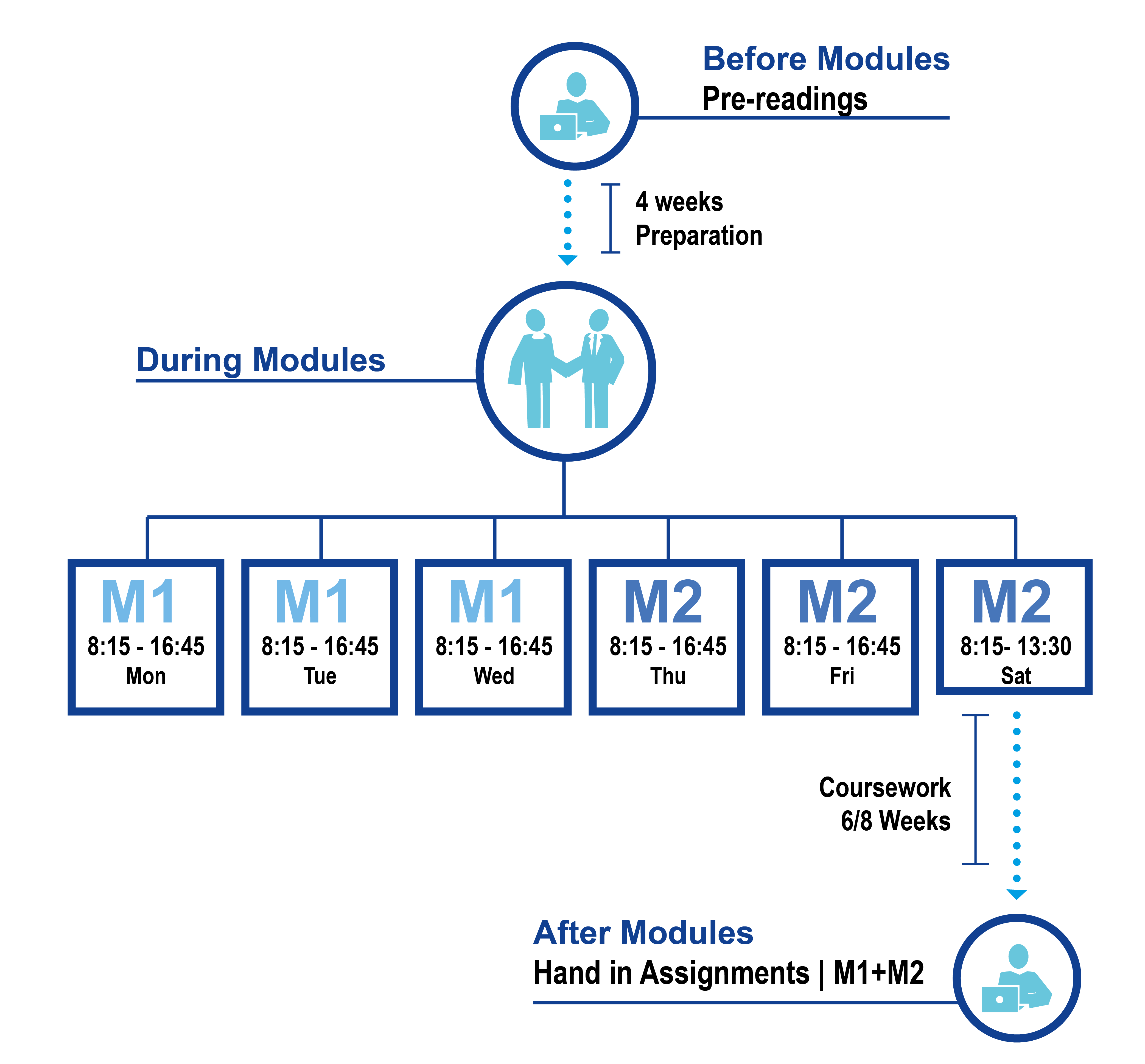OUR PROGRAMS ARE CURRENTLY SUSPENDED.
Combine the academic excellence with the flexibility to choose the most relevant modules for your professional development.
All our programs have a strong international background, being held on 3 different continents with partnerships with leading recognized institutions.

With our Tailored Program in Intercultural Communication, you can select the most relevant degree for your career based on your professional needs and time constraints:
Master of Advanced Studies in Intercultural Communication - MAS (60 ECTS) | MAS – 60 ECTS
The most comprehensive intercultural communication program for professionals.
18 modules corresponding 8 weeks of study, an online module and a Thesis/Field Project.
Diploma of Advanced Studies in Intercultural Communication | DAS – 30 ECTS
A tailored program consisting of an online module and 10 modules to be chosen among the 16 modules of the program corresponding to 5 weeks of study.
Certificate of Advanced Studies in Migration and Diversity | CAS – 15 ECTS
A specific 3 weeks-program for professionals seeking career advancement in public institutions that serve or employ migrants or address migration issues such as Swiss federal or local institutions, non-governmental organizations, or corporate organizations with diverse migrant workforce.
This program is a joint-certificate offered in collaboration with the Swiss Forum for Migration and Populations Studies (SFM), Université de Neuchâtel, Switzerland.
Certificate of Advanced Studies in Social Inclusion and Sustainability | CAS – 15 ECTS
A flexible program for professionals dealing with social inclusion and sustainability in the private and public sector, consisting in an online module and 2 weeks of study (4 modules).
Certificate of Advanced Studies in Diversity in Organizations and Society | CAS – 15 ECTS
A flexible program for professionals dealing with diversity issues in organizations, consisting in an online module and 2 weeks of study (4 modules).
Certificate of Advanced Studies in Intercultural Communication | CAS – 15 ECTS
A tailor-made program consisting in an online module and 2 weeks of study (4 modules) on specific topics based on your professional needs and time constraints.
Certificate of Attendance for Single Modules
Students who attend one or more modules from the diploma will receive a Certificate of Attendance for each module completed, carrying the corresponding ECTS.

PROGRAM STRUCTURE
Each module is structured in three parts:
Face-to-face instruction
The main part of each module will be taught face-to-face over three days of intensive instruction (24 hours course work). Each module will also include cultural activities and/or expert guest presentations.
Preparation
The individual preparation for each module, to be done before classroom instruction, consists mainly of reading background materials and analyzing examples and case studies (articles, websites, etc.). All preparatory materials are available in advance on the e-learning platform reserved for participants.
Certification paper
The evaluation of students' performance for each module is based on an academic assignment. This work has to be prepared by the student at home and has to be sent by email by the deadline set by the Academic Director. Participants usually have about 2 months to complete their certification paper.
Each module of the master is structured in the graphic below, except for the online module and the Thesis/Field project.


ACCREDITATION
USI Università della Svizzera italiana is one of 12 universities under the Swiss university system, coordinated by the Rectors’ Conference of the Swiss Universities (swissuniversitites). swissuniversities represents all 12 Swiss universities and maintains relationships with other accredited universities outside Switzerland. As a recognized university that is part of the public system, the degree-granting body of the MIC is USI Università della Svizzera italiana.
To ensure international recognition, in 2002 USI became the first Swiss university to adopt the Bologna Reform and the European Credit Transfer and Accumulation System (ECTS). The Bologna Declaration mandates that all taught courses and coursework are to be quantified in ECTS points. The ECTS guarantees that credits are wholly compatible and transferable within and across the broader European university system.





